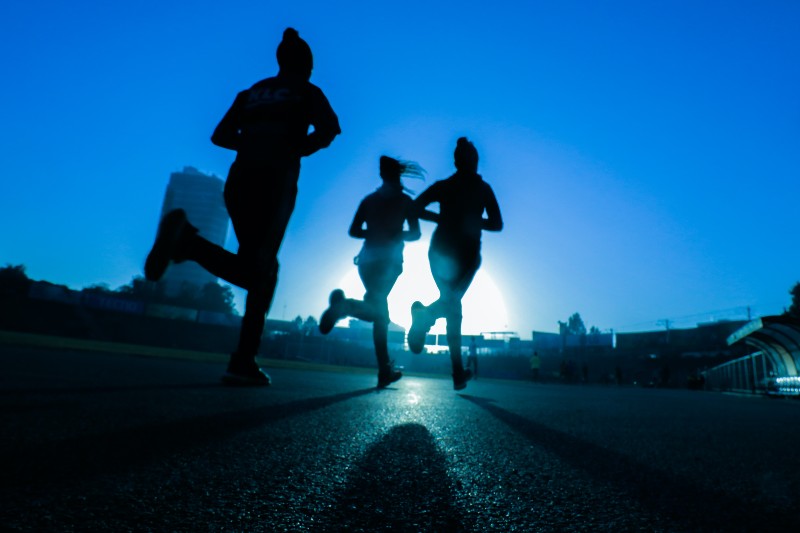The cannabis industry is an environmental, social, and corporate governance (ESG) conundrum.
While I was on a run on a recent summer morning, the rhythmic pattern of rubber hitting the blacktop allowed my mind to drift to the confluence of recent events that have set a new pace for environmental and social sustainability initiatives.
The COVID-19 pandemic is still with us, and its impacts continue to be disproportionately felt in disadvantaged communities and communities of color.
We all continue to reckon with the need to improve racial justice – a societal issue that is not new, but has become a more acute focus with the protests that started around this time last year.
The effects of climate change are literally being felt all around us as we look at the frequency and intensity of weather events. The Pacific Northwest, a region bustling with cannabis cultivation up our coast and into the Canadian province of British Columbia, is literally baking in a dangerous way.
We are currently in wildfire season, with each being more devastating than the last. The same can be said of hurricane season, as the Atlantic season’s pace is already faster than last year’s.
My passion for running is driven out of my commitment to physical and mental health and well-being. The cannabis industry was also born out of a commitment to boosting health and wellness, by harnessing the power of the plant.
But health and wellness is a multifaceted notion; it seems simple in principle, but gets more complicated when you think about the effects of and on the environment, public health, crime and public safety, job security, housing insecurity, and a host of other elements many of us take for granted.
We should also not lose sight of the motivation to advance the industry being driven – for many – by the injustices of the war on drugs, disparate treatment of communities of color, and a need for diversity and inclusion to truly achieve equity.
At the same time, the industry suffers from excessive greenhouse gas emissions attributable to energy sources, water use, fertilizer, and packaging waste, and exacerbated by the predominance of indoor grows.
The cannabis industry is an environmental, social, and corporate governance (ESG) conundrum; an environmentally challenged circumstance coupled with social equity ambition that needs amplification.
However, we are starting to see a coalescence around the opportunity to bring ESG together as an idea, rather than three separate letters; “ESG,” not “E vs. S. vs. G,” or “E, S, or G.”
Emerging from our country’s recent changes and challenges is an undeniable call to action where ESG stakeholders are taking a more comprehensive, coordinated, long-term view of how to think about and measure business impacts as we stride toward individualized solutions.
Cross-training for the sustainability finish line: Stakeholders weigh in
ESG discussions have now claimed a daily spot in media coverage. As the world picks up momentum to become more environmentally and socially conscious, many industry stakeholders are playing the role of pace setter in support of people, planet, and profit.
In the cannabis industry, customers and employees are leading the small pack and doing the most to drive change and force operators to think about the future. They have the power to enhance brand and brand awareness and drive market share in interestingly similar ways.
Investors are running slightly behind the leaders, but capital is a powerful accelerant. This group is coalescing around external standards, the desire to be a force in this emerging industry, and the need to provide innovation in the capital markets for years to come.
Pitchbook Data, a research, technology, and data company covering private capital markets including the cannabis industry, recently spoke to the pressure on private equity to adapt to ESG standards.
The government is a stakeholder that is trailing the others, but we all know it has a long arm, or stride as the running metaphors continue. While the social equity effort has been present, it has fallen woefully short of what we should all want to see.
The sustainability standards around cultivation and processing could fold into the ASTM Committee D37 on Cannabis, an effort that seems to be percolating, but one that we as an industry should lead rather than react to.
One final group of stakeholders is ancillary companies. CohnReznick, a national advisory, audit, and tax firm servicing industries including cannabis and proud member of the Sustainable Cannabis Coalition (SCC), sits in this collective group.
It has been uplifting to see members of this constituency working hard to have an impact with their compelling content, such as SCC co-founder Peter Dougherty’s plea to “Be the Change” in cannabis industry sustainability and ERP software company 365 Cannabis’s discussion of ancillary cannabis vendors’ importance in supporting sustainability in the supply chain.
In line with SCC, CohnReznick has written and spoken quite a bit over the past year about the importance of an equitable and sustainable recovery, and the need to “build trust” among all stakeholders to rewrite the strategies to deliver value to all.
The cannabis industry should be leading in these efforts given the increased relevance of its impact on economic and community development and the built environment — all critically aligned with ESG.
Running a 5k or going for the marathon? Getting to your personal best with ESG frameworks and data-driven insights
Domestic cannabis operators are becoming more sophisticated in so many ways. Systems and the data they house are getting attention, but the focus should be on a broader and higher quality of data that can be more easily accessed and reported on.
Fortunately, reporting and compliance frameworks have been taking shape that will make it easier to collect and act on standardized information — including when it comes to ESG factors.
The cannabis industry is still emerging, but already has a history as a significant public company marketplace, albeit on Canadian exchanges. Currently, quite a few of these Canadian public companies are or will be coming under the auspices of the SEC given some ownership technicalities such as the foreign private issuer exemption.
At the same time, the SEC is knee-deep in its own framework for ESG reporting standards and disclosure that will eventually affect the leading MSOs.
Ultimately, translation of ESG metrics into a more quantitative framework will create value for cannabis operators rather than be a cost (a topic for another day). Private systems and data solutions are being developed to make that more easily accomplished, and not a moment too soon given the recent announcement of the International Integrated Reporting Council (IIRC) and Sustainability Accounting Standards Board (SASB) merger to create the Value Reporting Foundation. In another fortuitous sign of cannabis ESG momentum, this new regime that will work across four continents comes as large U.S. operators are announcing international transactions.
It’s also worth noting that many of the banks that would be impacted by the continued effort in the U.S. House of Representatives on the SAFE Banking Act legislation are the target of the Task Force on Climate-Related Financial Disclosures.
As the maturations of global ESG initiatives and the cannabis industry continue to run in tandem, the need to take advantage of the momentum of each opportunity is undeniable. The moon and the stars are clearly aligning, and while the cannabis industry measures progress in dog years, we have lots to do.
The cannabis industry must prioritize social and environmental sustainability and governance initiatives to remain a leader and not get left behind. Let’s get moving!
Author
-
Ira Weinstein serves as CohnReznick’s Managing Principal – Real Estate, Cannabis Industries, where he oversees the advisory, assurance, and tax services pertaining to both industries. His role is to develop and execute strategy that grows the capacity and capability of the firm’s resources dedicated to these industries for the benefit of our clients, our people, and our communities. CohnReznick is a founding member of the Sustainable Cannabis Coalition.







